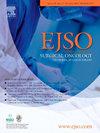Patient public perspectives on digital colorectal cancer surgery (DALLAS)
IF 2.9
2区 医学
Q2 ONCOLOGY
引用次数: 0
Abstract
Introduction
The importance of patient perspectives is increasingly appreciated in clinical practice and academia with formal engagement processes developing worldwide. Digital surgery encompasses intraoperative patient data (including surgical video) analysis and so requires public-patient involvement (PPI).
Methods
Engagement events were conducted based on NIHR and GRIPP2 LF guidelines. Following informative talks on digital surgery, invited patients and patient relatives were split into focus groups regarding 1) Research; 2) Data; 3) Industry Involvement; and 4) Artificial Intelligence in surgery. Scribed feedback was thematically analysed by two researchers independently. A pre and post event survey was sought voluntarily.
Results
36 participant perspectives were analysed. In general, patients were enthusiastic about having a voice in surgical research and sharing their journey, with most groups concluding that capturing this was most appropriate after treatment recovery. The use of patient data for surgical development (i.e. research and education) was endorsed unanimously for the purpose of future patient benefit when responsibly and transparently managed and the value of industry was acknowledged. From 30 pre/post surveys (all p > 0.05), participants afforded the greatest data (including video) ownership claim to the surgical team (52 %/48 %) versus patients (32 %/24 %) and the hospital (12 %/24 %). While most (73 %/80 %) agreed that AI should be applied in surgical care, most felt the surgeon most valuable (93 %/80 %) with participants disagreeing that AI should make diagnoses (57 %/64 %) or treat patients (70 %/70 %) without human input.
Conclusion
Patients capably represent stable views and expectations that can strengthen modern and evolving surgical development involving data privacy, ownership and management.
患者和公众对数字化结直肠癌手术(DALLAS)的看法。
导言:患者观点的重要性在临床实践和学术界日益受到重视,正式的参与过程在全球范围内不断发展。数字化手术包括术中患者数据(包括手术视频)分析,因此需要公众-患者参与(PPI):方法:根据 NIHR 和 GRIPP2 LF 指南开展参与活动。在关于数字化手术的信息讲座之后,受邀患者和患者亲属被分成几个焦点小组,分别讨论 1) 研究;2) 数据;3) 行业参与;4) 手术中的人工智能。两名研究人员分别对记录的反馈意见进行了专题分析。活动前后自愿进行了问卷调查:对 36 位参与者的观点进行了分析。总体而言,患者热衷于在手术研究中发表意见并分享他们的心路历程,大多数小组认为,在治疗恢复后收集这些信息最为合适。大家一致赞同将患者数据用于外科发展(即研究和教育),以便在负责任和透明的管理下为未来的患者造福,并承认了行业的价值。在 30 份前后调查中(P 均大于 0.05),参与者对手术团队(52%/48%)、患者(32%/24%)和医院(12%/24%)的数据(包括视频)所有权要求最高。虽然大多数人(73 %/80 %)同意人工智能应用于外科护理,但大多数人认为外科医生最有价值(93 %/80 %),参与者不同意人工智能在没有人类输入的情况下进行诊断(57 %/64 %)或治疗病人(70 %/70 %):患者有能力代表稳定的观点和期望,这可以加强涉及数据隐私、所有权和管理的现代和不断发展的外科发展。
本文章由计算机程序翻译,如有差异,请以英文原文为准。
求助全文
约1分钟内获得全文
求助全文
来源期刊

Ejso
医学-外科
CiteScore
6.40
自引率
2.60%
发文量
1148
审稿时长
41 days
期刊介绍:
JSO - European Journal of Surgical Oncology ("the Journal of Cancer Surgery") is the Official Journal of the European Society of Surgical Oncology and BASO ~ the Association for Cancer Surgery.
The EJSO aims to advance surgical oncology research and practice through the publication of original research articles, review articles, editorials, debates and correspondence.
 求助内容:
求助内容: 应助结果提醒方式:
应助结果提醒方式:


